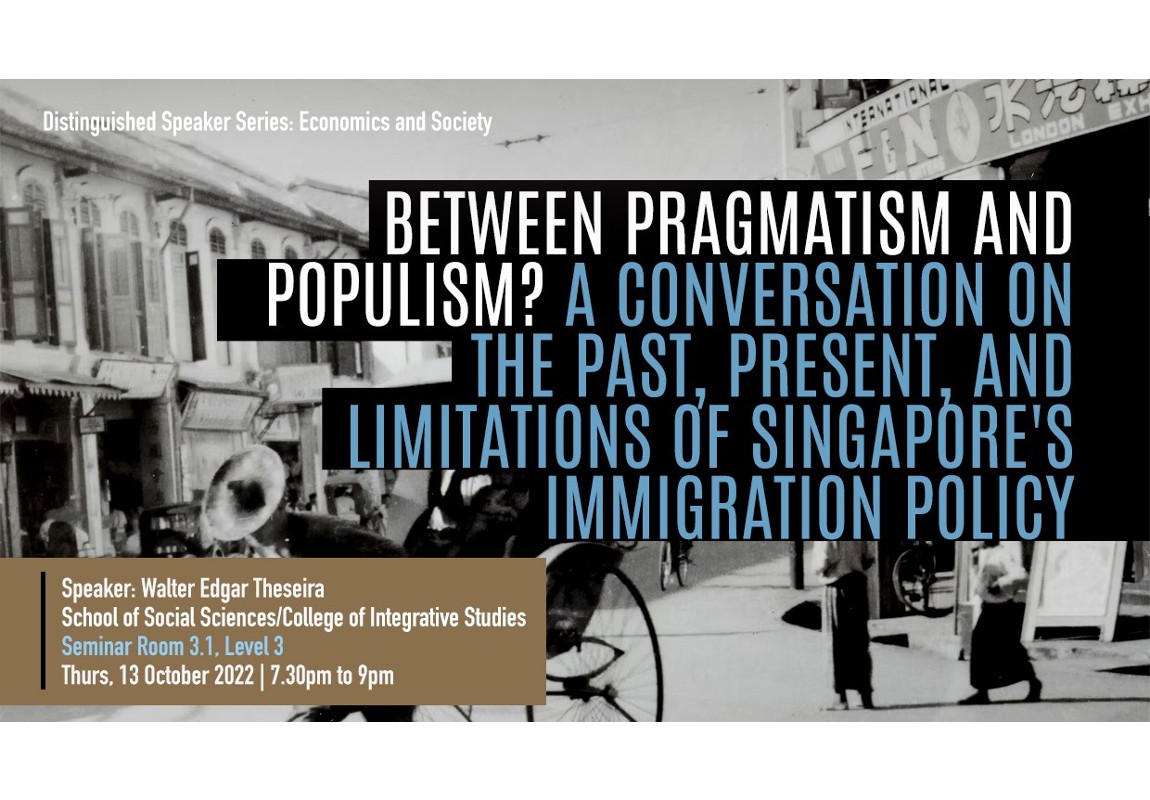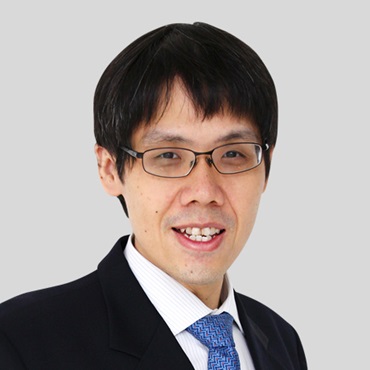
Walter Edgar Theseira
 |
Walter Edgar Theseira is Associate Professor of Economics, School of Business, Singapore University of Social Sciences; and Adjunct Senior Research Fellow, Asia Competitiveness Institute, Lee Kuan Yew School of Public Policy. His Ph.D. is in Applied Economics and Managerial Science from the Wharton School, University of Pennsylvania. He has published in the Proceedings of the National Academy of Sciences and the Journal of Economic Behavior and Organisation. He has advised Government agencies on economics research, and is a Board Member of the Competition and Consumer Commission of Singapore. He served as a Nominated Member of Parliament, 13th Parliament of Singapore. |
The story of modern Singapore is the story of migration. And the story of Singapore's immigration policy is, like much else, characterized by pragmatism aimed at solving Singapore's economic and social problems. This talk will sketch a brief history of immigration, from the founding of modern Singapore through the present day, focusing on the economic, social, and political motivations that shaped changes in immigration policy. Immigration policy is focused on relieving labour force constraints and on buffers against macroeconomic cycles, allowing for rapid expansion of the labour force while taming inflation during booms, and moderating the impact of busts on native employment through selective attrition of the foreign workforce. A key feature is selectivity by skills or socioeconomic status: immigrants are assimilated from the upper tier of the skills and income distribution, whereas low-skill immigrants have no pathway to assimilation. The economic consequences of immigration, including impacts on native employment, labour supply, skills and sectoral allocation, and on industrial structure and productivity, are noted. We conclude by examining three serious limitations to Singapore's immigration policy in the near future: the structural economic insecurity faced by the native labour force in the presence of technological change and open high-skill immigration policy; the inability of the economy to wean itself off low-wage, low-skill migrant labour; and the challenges Singapore faces in reinventing itself when long-term migrant assimilation has thus far simply replicated the colonial-era societal status quo. With immigration policy now seemingly caught between pragmatism and populism, it may be increasingly difficult for Singapore to reinvent itself to meet the demands of the future.